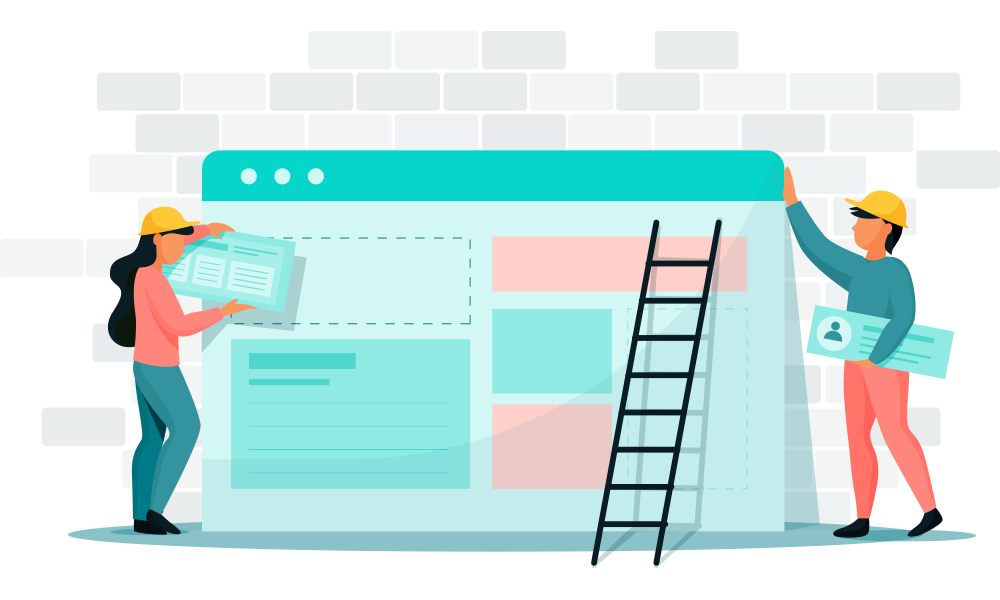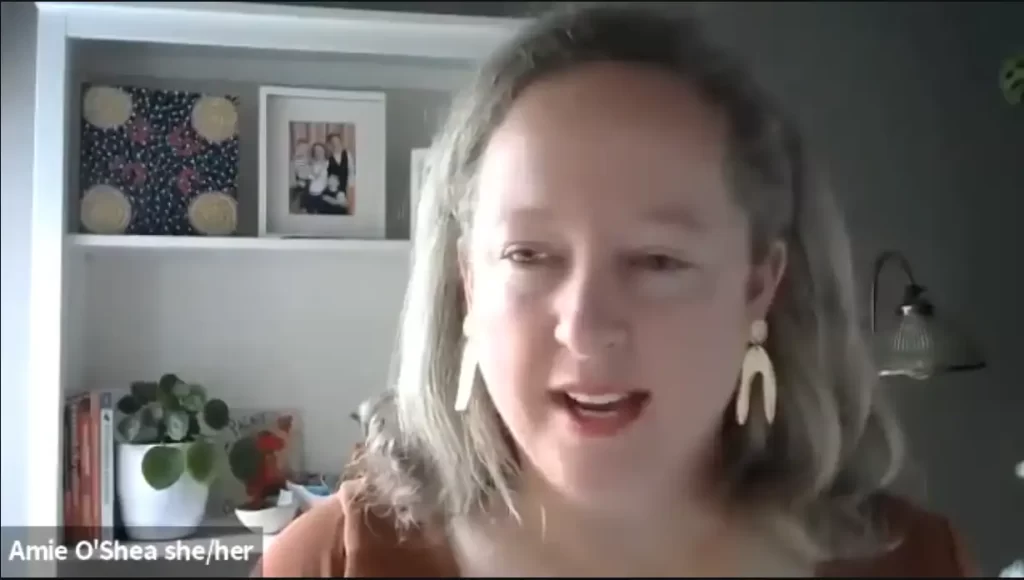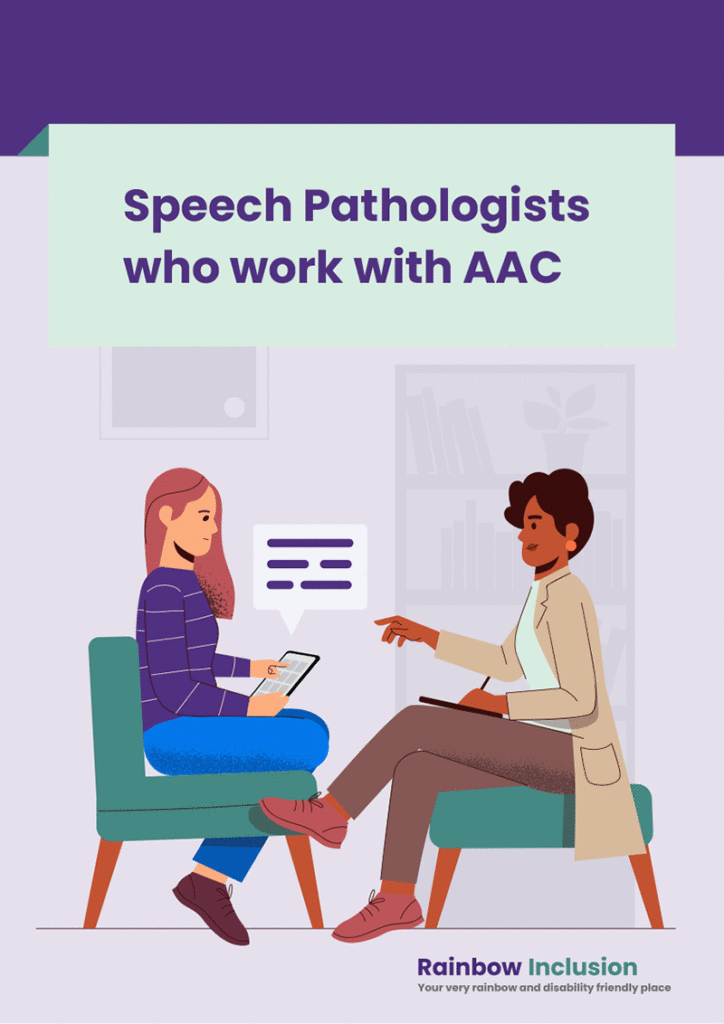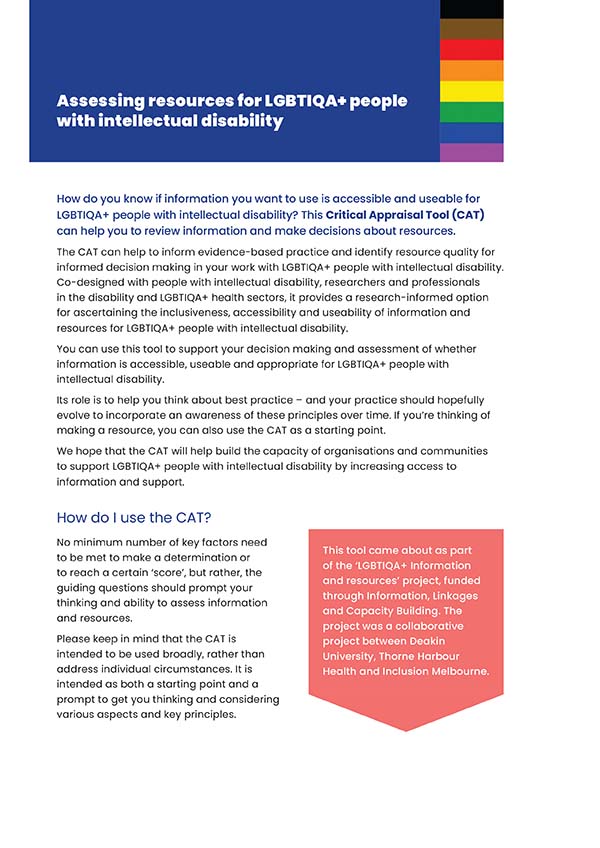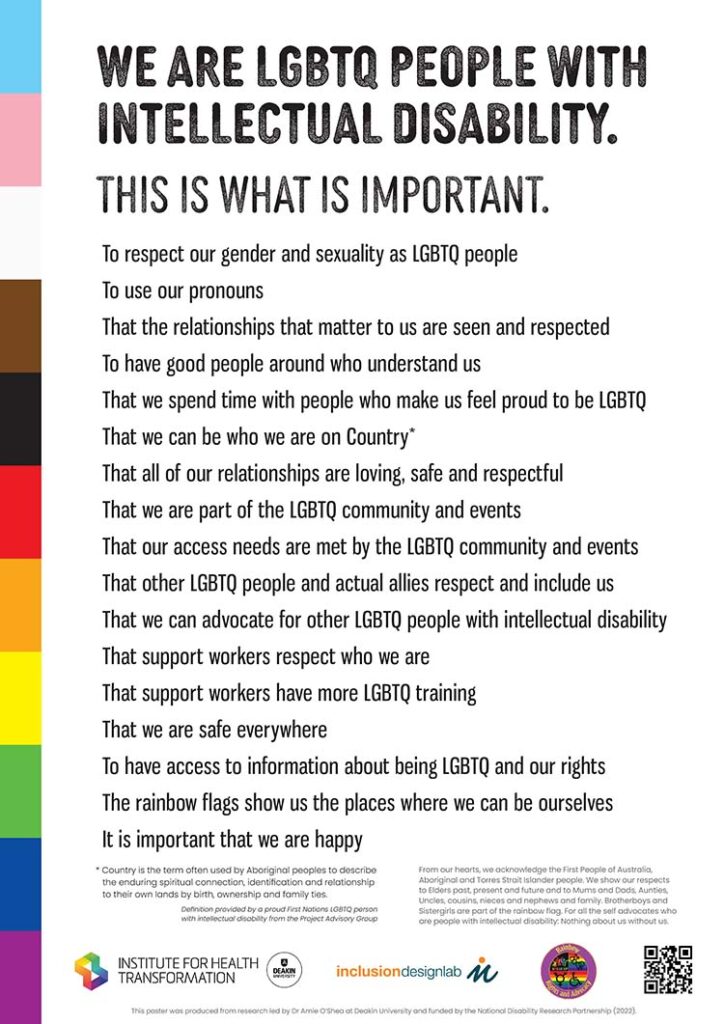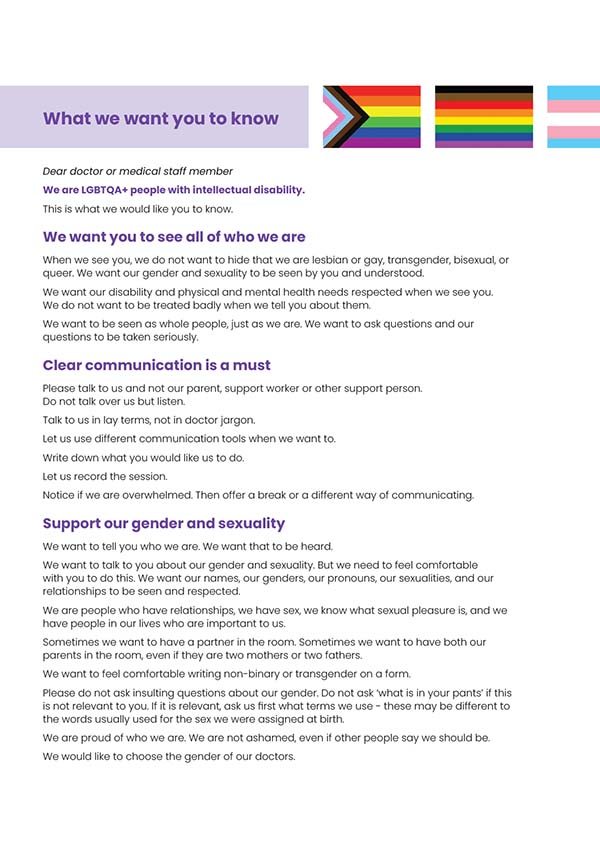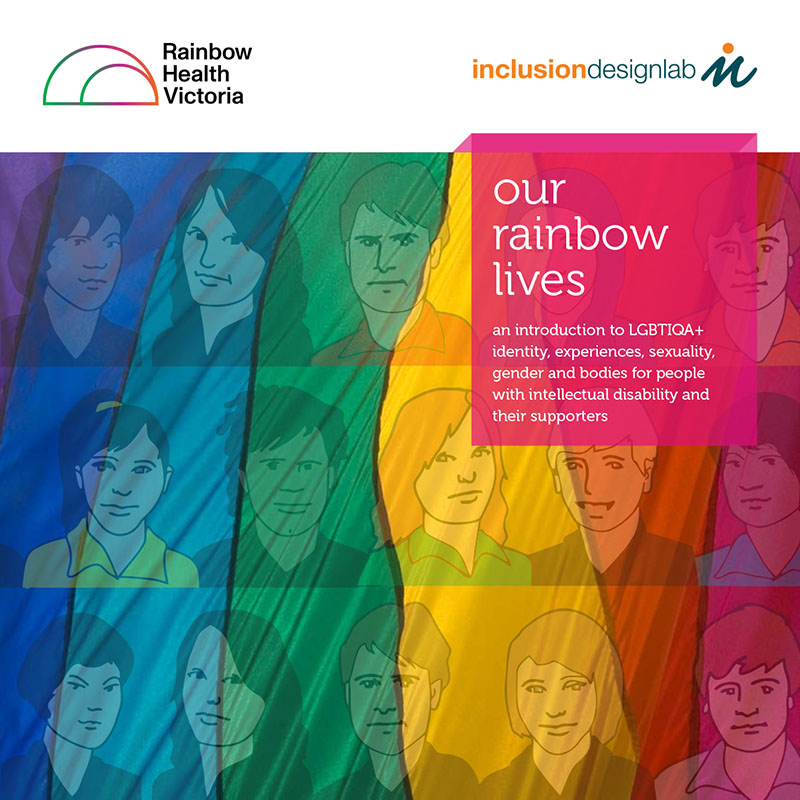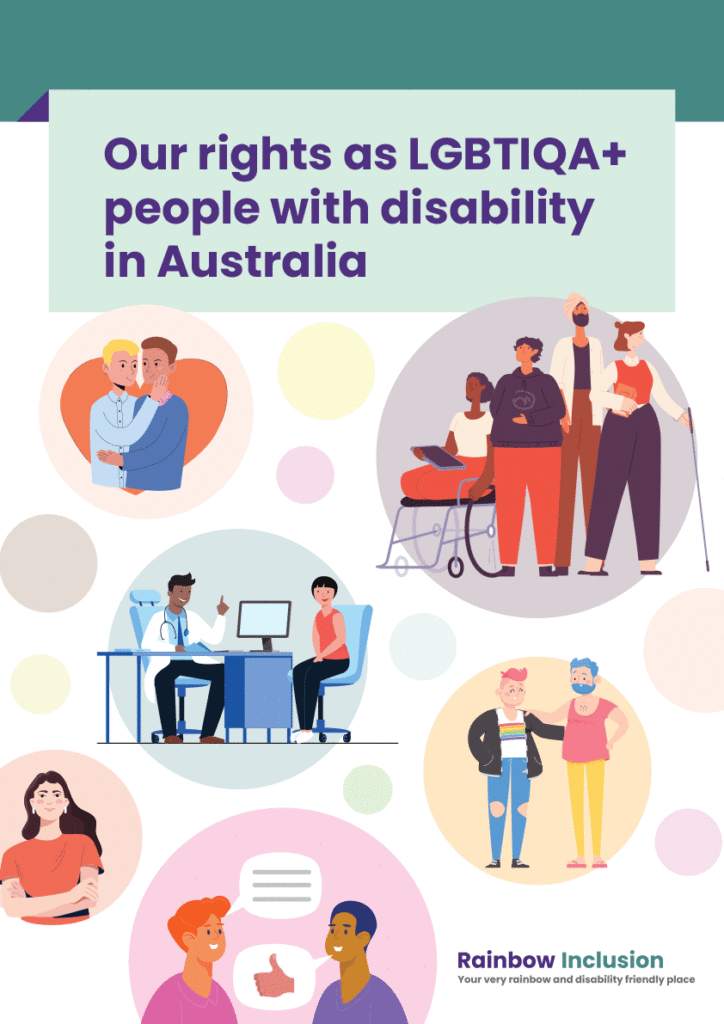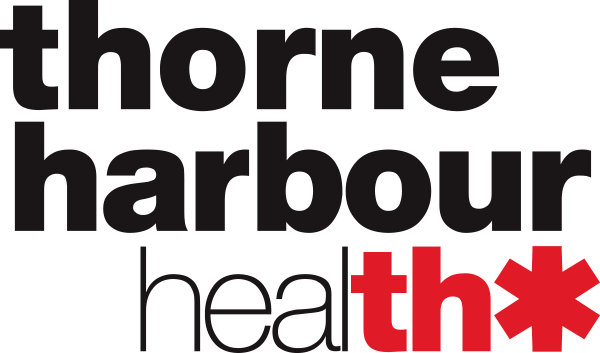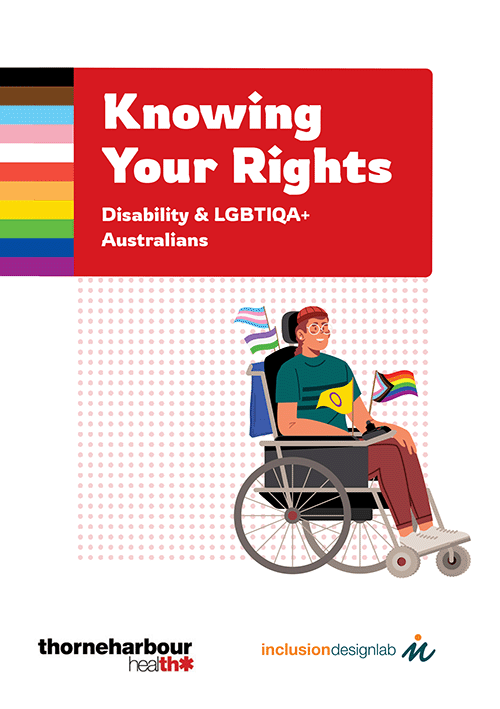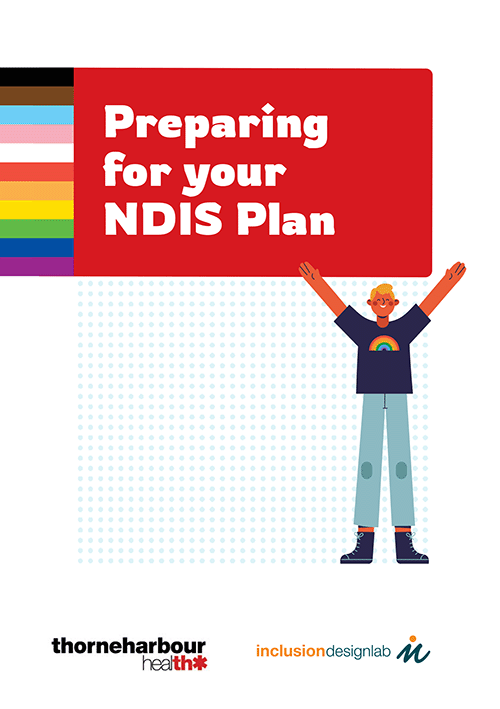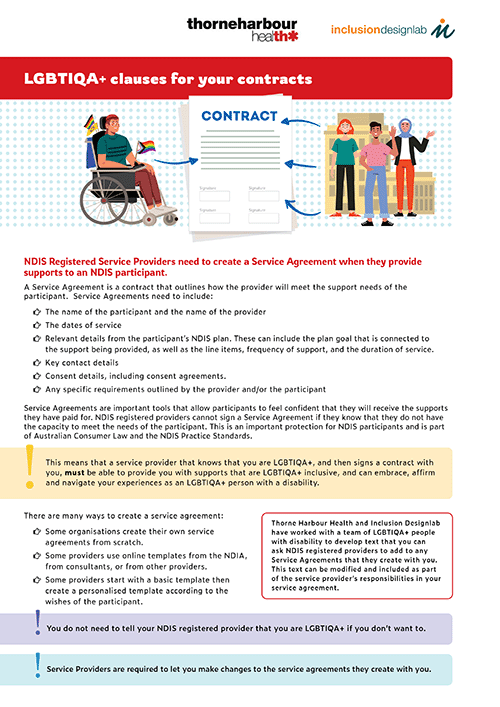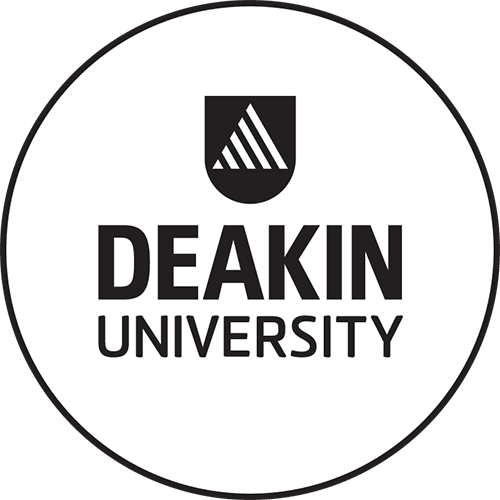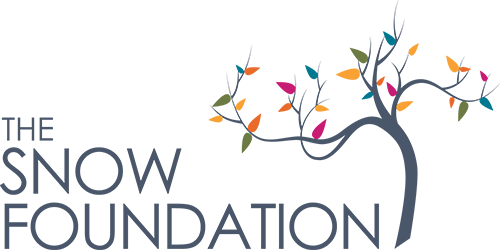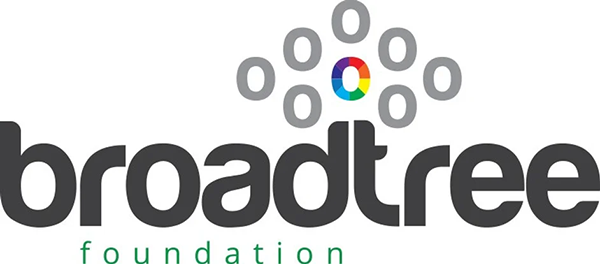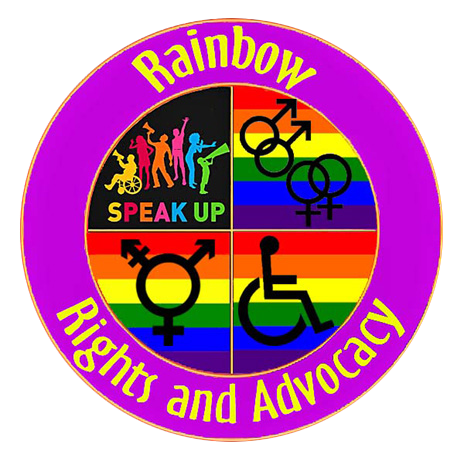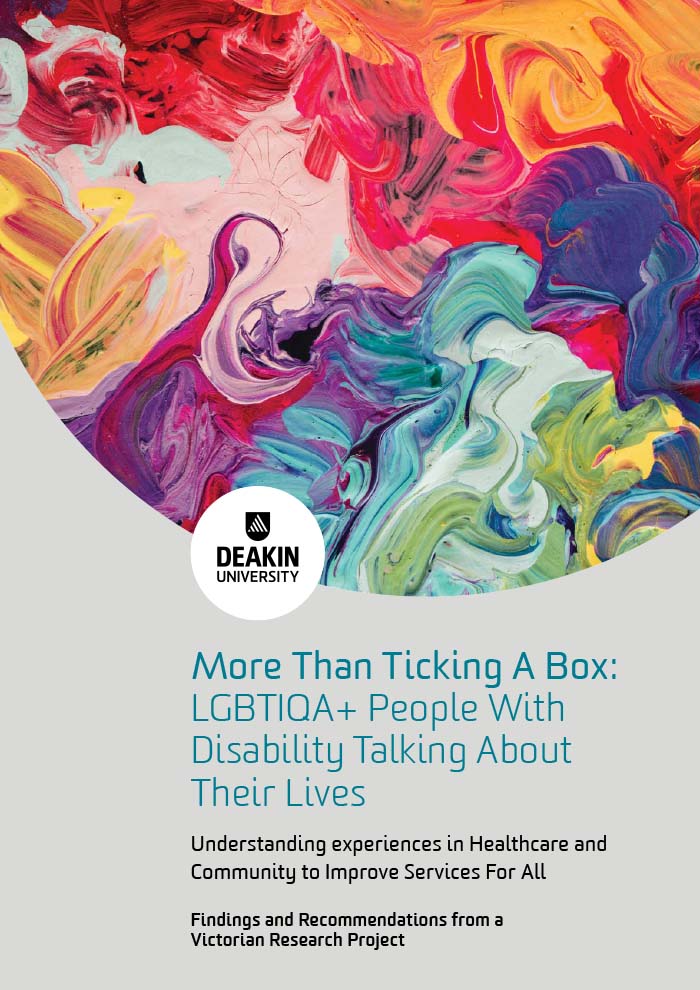For Allies and Others
This information is for allies. Allies are people who support you like family, friends, supporters and health professionals.
You can share this page with people who you would like to read this information.
The information on the pages listed below is not in Easy Language.
What are Allies?
An Ally is someone who shows support for a group of people. You can be an Ally for L G B T I Q A + people, people with disability, or L G B T I Q A + people with disability.
Someone can show they are an Ally by:
Learning about issues that are important for L G B T I Q A + people with disability and the community.
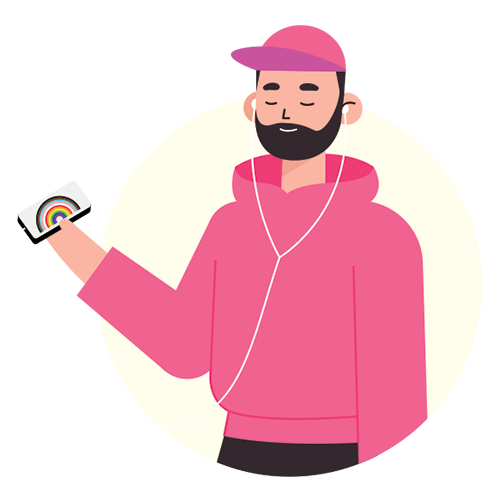
You can learn by reading, listening to podcasts, and talking to people.
Showing you are an Ally in public places
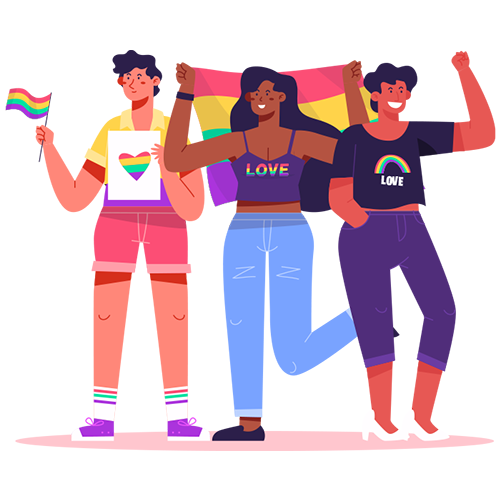
This could be going to L G B T I Q A + event, supporting L G B T I Q A + businesses and charities, and ‘calling out’ or speaking up when someone is being homophobic, transphobic, or queerphobic.
Taking care of the L G B T I Q A + people in your life who need support.
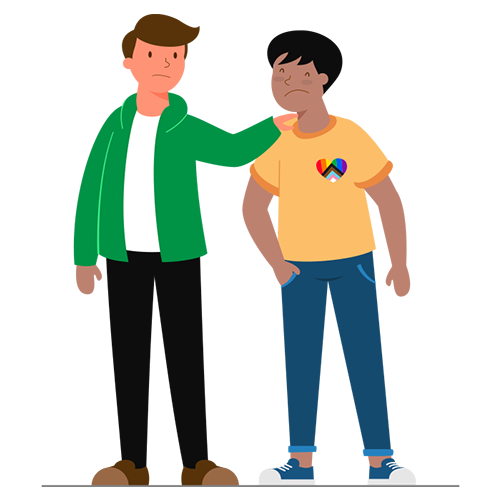
You can support by helping someone when they are sad, angry, or annoyed, and help to cheer them up
Letting L G B T I Q A + people with disability speak for themselves.
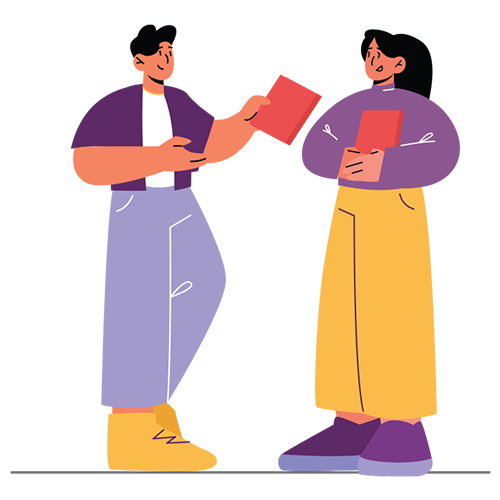
If people ask you questions, tell people some of your favourite websites, books, social media accounts, and others places that you learn and get information.
The summaries of the pages below are in easy language. If you think they would be helpful for your family, friends, and supports you a can ask them to read the pages.
This information on these pages is for others. It is not in easy language.
Speech Pathologists who work with Augmentative and Alternative Communication (AAC)
This is a booklet.
It has 4 pages.
This booklet is for Speech Pathologists (sometimes calls Speech Therapists).
This booklet has information about how to work with L G B T I Q A + people who use AAC. AAC stands for Augmentative and Alternative Communication. Someone who uses AAC uses items to help them talk or communicate in another way. This can look like a machine that talks for you, writing with pen and paper, using cards with words and pictures on them, or using Sign Language. There are many types of AAC that people use.
This booklet has some examples of words used in the L G B T I Q A + community that Speech Pathologists can use with a person with disability. There are also some tips for helping L G B T I Q A + who use AAC feel safe.
Critical Appraisal Tool
This is a tool. It has 3 pages.
The Critical Appraisal Tool (CAT) is a way to check if information is accessible for L G B T I Q A + people with intellectual disability.The tool can help allies and supporters decide if a website, booklet, or other information is helpful, and can be easily read and understood by the person they support.‘We are LGBTQ People with Intellectual Disability: This is what is important. ‘ poster
This is a poster.
It is one page.
This poster was made by a group of 24 LGBTQ people with intellectual disability and supporters from Deakin University. They spent time talking about what helped them feel good about themselves. They came up with a list of statements. Then they talked to other people to ask if they agreed with the statements. The poster has the statements on it.
You can use this poster in your home.
You can also give it to other people in your community.
The poster can help people learn more about what you need to feel good about yourself.
The poster is in easy language.
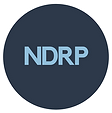
What we want you to know – A letter to health professionals
This is a letter. It has 2 pages.
This letter can help your doctor or other health professionals understand being a L G B T I Q A + person with disability. It was written to help doctors and health professionals understand the difference that they can make in our lives.The letter has different ways that they can respect you and your identities. The letter has information about communication, gender and sexuality, and consent.Our Rainbow Lives
This is a book.
It is a bit different to other books. You can read this book alone, or a friend or supporter can read the left page while you read the right page.
This book is all about lesbian, gay, bisexual, transgender, intersex, queer and asexual people! It is OK if you do not know what these words mean now. This book will help you learn about them.
Our rights as L G B T I Q A + people with disability in Australia
This is a booklet.
It has 4 pages.
This booklet lists 10 of your rights as an L G B T I Q A + person with disability.
These rights make sure that L G B T I Q A + people with disability are treated the same as anyone else in the community.
This booklet also comes with a copy that is in easy language. Go to the easy-lanuage copy.
Your rights as an LGBTIQA+ person with disability
These resources are NOT in easy language.
Inclusion Designlab worked with an organisation called Thorne Harbour Health to create information for L G B T I Q A + people with disability.
This information is in three guides. One is about your rights as an L G B T I Q A + person with disability. One is about getting ready for your N D I S planning meeting. The last guide is about how to make sure your needs as an L G B T I Q A + person are protected when you pay for support.
More Than Ticking A Box: L G B T I Q A + People with disability talking about their lives
This is a research report.
It has 56 pages.
This report was written by Researchers at Deakin University. It was written after a project that spoke to L G B T I Q A + people with disability about their lives. The report talks about what L G B T I Q A + people with disability think about healthcare and the community. People shared good and bad things about when they have used healthcare or when they are in the community.
